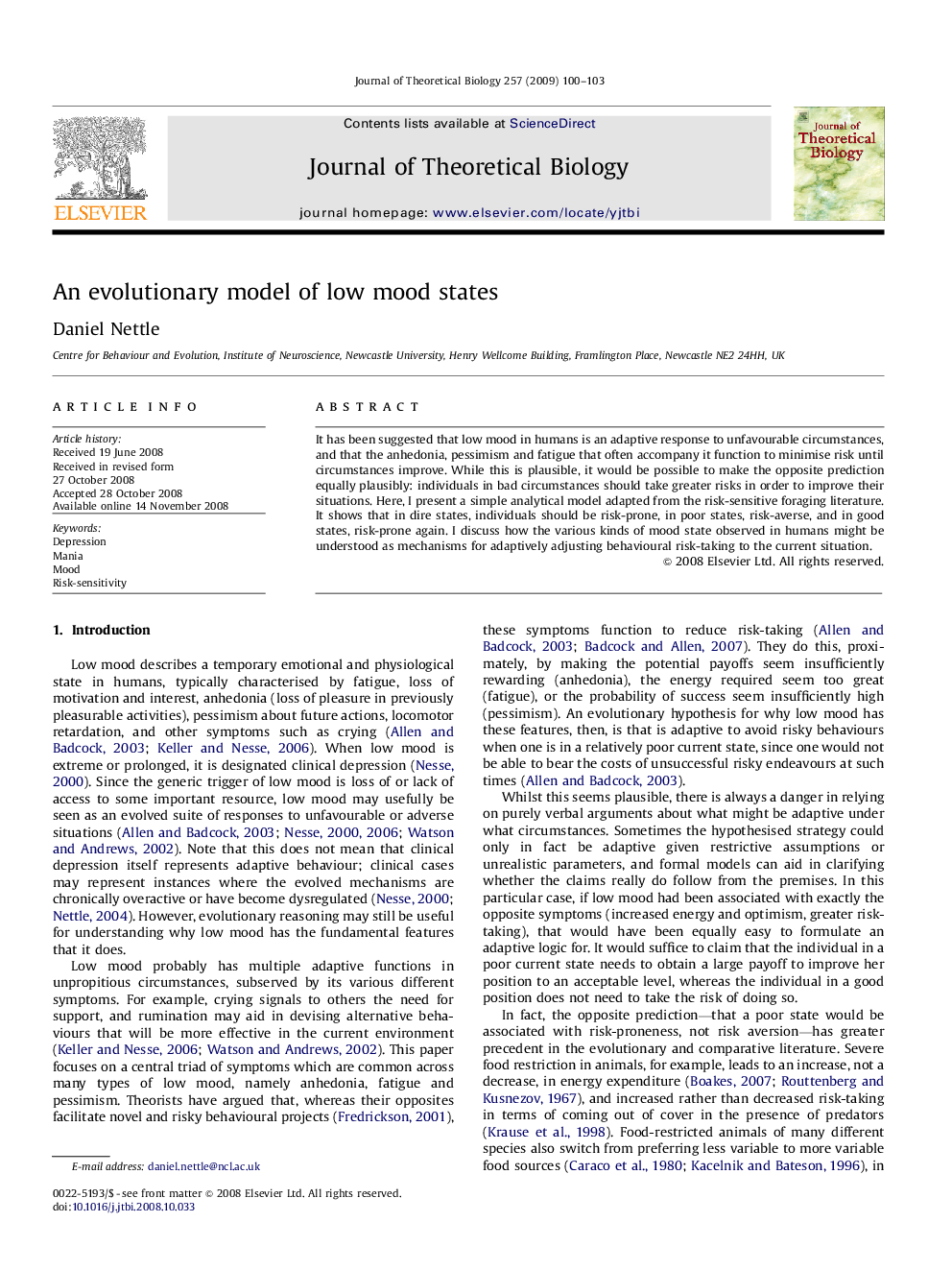| Article ID | Journal | Published Year | Pages | File Type |
|---|---|---|---|---|
| 4498505 | Journal of Theoretical Biology | 2009 | 4 Pages |
It has been suggested that low mood in humans is an adaptive response to unfavourable circumstances, and that the anhedonia, pessimism and fatigue that often accompany it function to minimise risk until circumstances improve. While this is plausible, it would be possible to make the opposite prediction equally plausibly: individuals in bad circumstances should take greater risks in order to improve their situations. Here, I present a simple analytical model adapted from the risk-sensitive foraging literature. It shows that in dire states, individuals should be risk-prone, in poor states, risk-averse, and in good states, risk-prone again. I discuss how the various kinds of mood state observed in humans might be understood as mechanisms for adaptively adjusting behavioural risk-taking to the current situation.
